Vol.5 Airport Operations Business
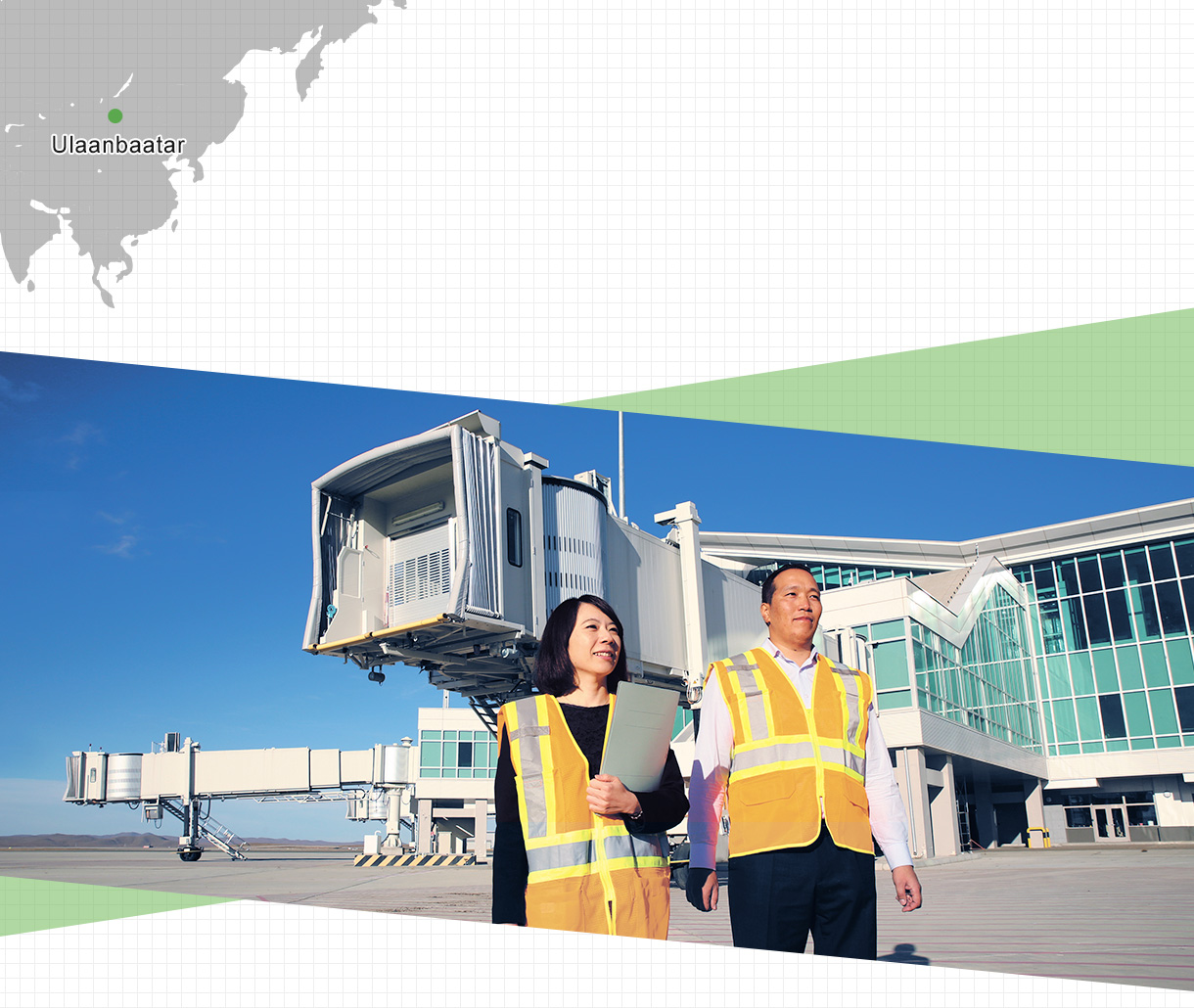
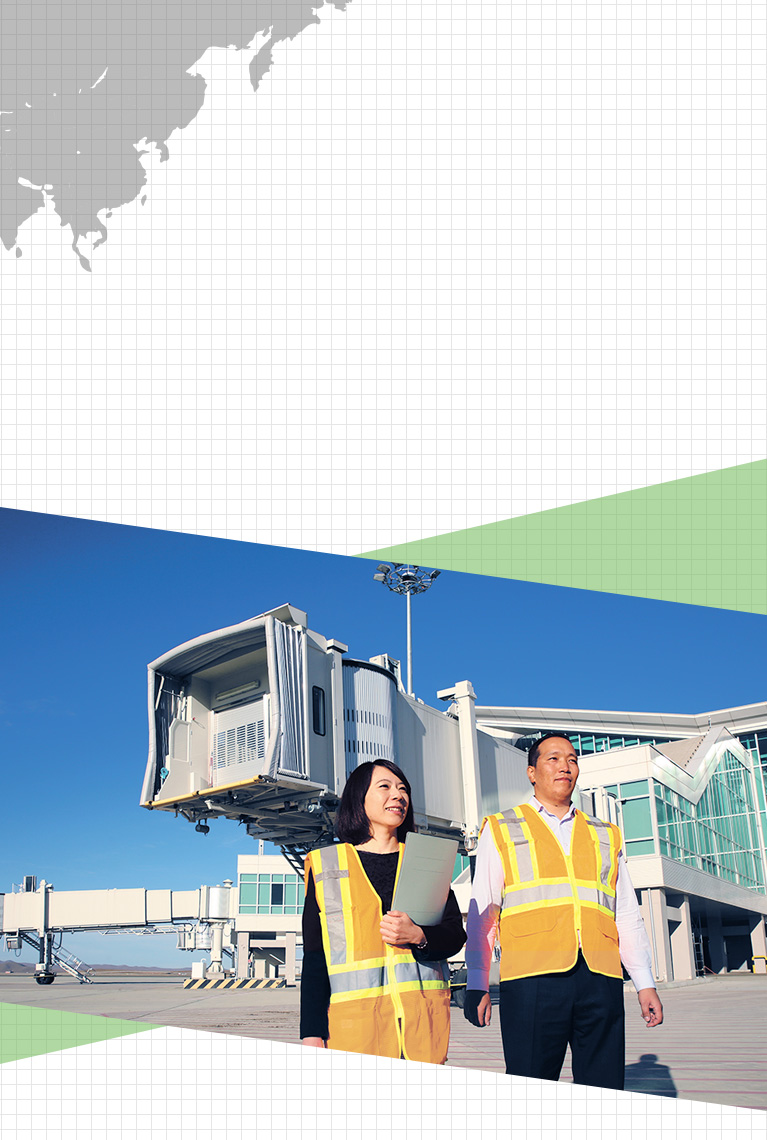
Vol.5
Airport Operations Business
Boosting Mongolia's International Appeal
Helping a Country to Develop Through Airport Operations
This series introduces some of the MC Group's global operations and the people behind them. Our fifth installment features an airport privatization project in Ulaanbaatar, the capital city of Mongolia. A Japanese consortium and the Mongolian government have joined forces to launch a new company, one that will leverage their respective exterpise to keep the airport running smoothly. We interviewed some of the people who were instrumental in getting the new company off the ground.
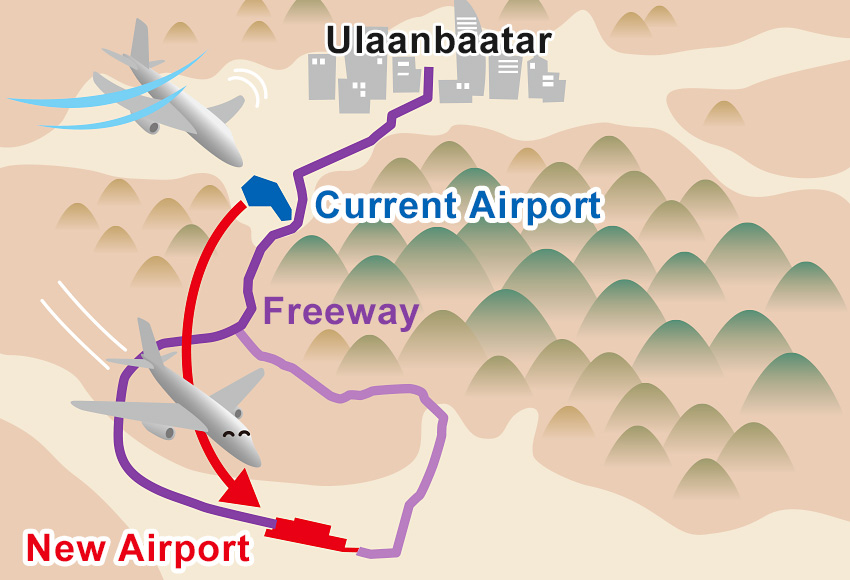
The new airport is situated in a large plain, where weather is not expected to adversely impact flights and schedules.
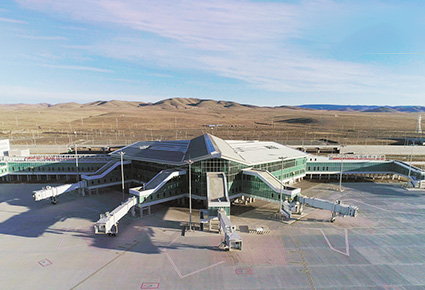
Preparations are underway to open the new airport next summer.
Top: The new airport is situated in a large plain, where weather is not expected to adversely impact flights and schedules.
Bottom: Preparations are underway to open the new airport next summer.
Bilateral Team Tackles New Airporat Privatization Project
Situated in the middle of a vast plain about 50 kilometers southwest of the city center, New Ulaanbaatar International Airport will serve as the gateway to Mongolia. Ulaanbaatar already has Chinggis Khaan International Airport, however its surrounding terrain makes it susceptible to adverse weather conditions that can affect takeoffs and landings. Because flights are frequently delayed there, the decision was made to relocate to the new airport next summer. Built with a yen-loan, ODA grant from the Japanese government, New Ulaanbaatar Airport has become symbolic of bilateral cooperation between Japan and Mongolia. This past July, the four-company, Japanese consortium comprising Mitsubishi Corporation (MC), Narita International Airport Corporation, Japan Airport Terminal Co., Ltd., and JALUX Inc., was contracted by the Mongolian government to run the new airport for 15 years. Preparations are underway to ensure that the airport can begin accommodating flights by next summer.
Recently appointed Chief Financial Officer (CFO) of New Ulaanbaatar International Airport LLC (NUBIA) is Noriko Kishikawa. Since Joining MC, Kishikawa has consistently been involved in bids and negotiations for transportation infrastructure projects, including subway operations in India and the Mandalay International Airport Project in Myanmar. For three years, she relied on that experience to help her consortium successfully navigate the bidding and contract negotiation stages for the new airport in Ulaanbaatar. She has also been actively engaged in NUBIA's management.
Kishikawa is clearly excited about the project. "I wanted to help run something that I was involved in, and seeing this project through from the bidding to management stages has been a valuable experience," she says. "Frontline management is a new challenge for me and a big responsibility, but I am looking forward to the process of building this company with all of my colleagues on the ground."
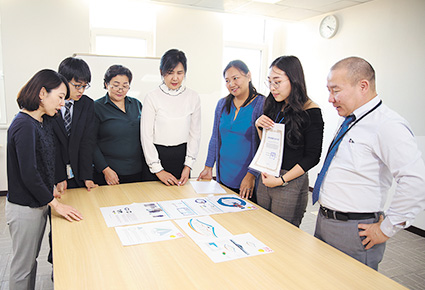
NUBIA staff judge some of the logo-contest submissions.
Building Core Systems One at a Time
Airport privatizations are gathering momentum around the world. Their aim is to promote greater business and tourist traffic by attracting as many airlines as possible and injecting private-sector initiative to offer safe, secure and high-quality airport services. When the Mongolian government decided to relocate the international airport in Ulaanbaatar, it sought out a partnership with a Japanese consortium. Takeo Kato is President and CEO of NUBIA. "There are not many examples of airports in capital cities whose management has been contracted out to foreign companies, so the Mongolian government has some big expectations of us," he says. "We will do our best to meet those expectations with an attractive airport."
Kishikawa is in charge of NUBIA's Administration Division, which provides all of the company's corporate functions. She must work with the locally hired employees to quickly develop the company's operational base and make a myriad of decisions in time for the summer opening, covering everything from HR systems to office equipment and the airport's waste management system. "My immediate challenge is putting NUBIA's core systems in place so that its various departments can all work smoothly with one another," she says.
Most of the employees transferred from the current airport do not speak English, so NUBIA employs interpreters who are fluent in Japanese and Mongolian. So far, just about everything Kishikawa has experienced at the company has been a first for her, but she has embraced that, saying that it "only makes the situation more challenging and enjoyable." During the negotiations, she could sense the cultural differences between Japan and Mongolia, but she knew how important it was to respect her counterparts' customs. Her strategy has been to build a trust-based relationshihp by demonstrating the qualities that Japanese professionals are known and appreciated for, such as the ability to provide timely information through thorough reports, notifications and consultations. "We looked for ways to get everyone engaged, such as by having a contest to design the company's logo," she says. "I am so pleased that all of the employees are equally committed to building an excellent company and a first-rate airport."
President Kato places a lot of trust in his CFO. "For Noriko, this is a new challenge, but she has been sincere with our Mongolian counterparts right from the start, and I know that I can rely on her," he says.
Once preparations to open the airport are completed, Kishikawa will turn her attention to attracting tourists and airlines. "Mongolia has rich, natural beauty and a growing demand for business, so I want our airport to attract visitors from all over the world," she says. "If it can become a thriving new hub, then it will also help to invigorate this country's economy. I am hopeful that we can leverage this project to boost Mongolia's international appeal, help it to grow and develop, and improve its citizens' quality of life."
After the Inteview
The new airport is about a one-hour drive on the freeway from the center of Ulaanbaatar. There are still no aircraft or passengers to be found there, as it is still readying itself for next summer's opening. Kishikawa is the one responsible for injecting life into the project. She and her colleagues all share a desire for the airport to rank among the world's finest, and they meet every day to discuss things like eco-friendly waste separation schemes and other unprecedented challenges in Mongolia. The enthusiasm with which they bounce ideas off one another is impressive. Theirs is truly a borderless team.
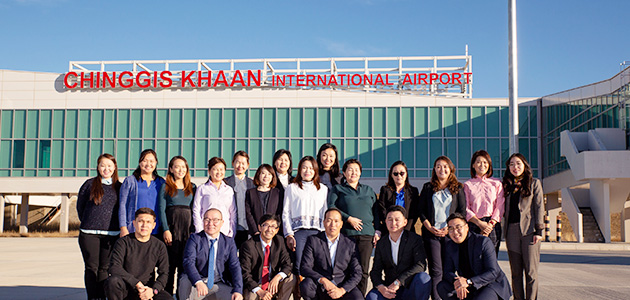
From the November 29, 2019 edition of The NIKKEI, Advertising



